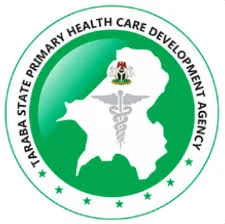By Thomas Samuel
Primary healthcare centers serve
as the backbone of essential healthcare services for the masses in Nigeria.
Nowhere is this more evident than in Taraba State, a region marked by its
diverse population spread across 16 local government areas, many of which
encompass rural communities facing significant healthcare delivery challenges.
In recent years, these primary
healthcare centers have grappled with a myriad of issues, ranging from poor
infrastructure and inadequate staffing to critical shortages of essential drugs
and funds. A recent investigation shed light on the dire situation in many
local government areas, where primary healthcare centers are failing to meet
expectations due to dilapidated structures, lack of resources, and staffing
shortages.
Take, for instance, local
government areas such as Ardo-Kola, Bali, Donga, and Yorro, where primary
healthcare centers struggle to provide comprehensive healthcare services due to
the absence of qualified doctors, inadequate pharmacy facilities, and the failure
of the state government to renovate and equip these centers with essential
medical facilities.
The repercussions of these
challenges are dire, with the absence of doctors and essential medical supplies
leading to alarming consequences, including a high child mortality rate in
Taraba State, which stood at 70 deaths per 1000 live births in 2018. This
statistic underscores the urgent need for intervention to address the
healthcare challenges faced by communities across the state.
While efforts by the state
government, such as deploying community health extension workers and providing
practical training for students, have been made, they have fallen short of
addressing the root causes of the healthcare crisis. Despite these efforts,
primary healthcare centers continue to struggle, resulting in preventable
deaths and exacerbating the plight of vulnerable communities.
The challenges facing primary
healthcare centers in Taraba State extend beyond the few local government areas
mentioned earlier, affecting all 16 local government areas in the state. Issues
such as lack of electricity, absence of clean water sources, and critical
shortages of functional healthcare facilities further compound the situation,
identifying Taraba among states facing a critical shortage of well-equipped
healthcare facilities.
Though successive administrations
have made efforts to improve the quality of primary healthcare services,
sustaining these interventions has proven challenging. For example, while
Governor Darius Dickson Ishaku's administration made strides in equipping
primary healthcare centers, these efforts waned after the initial intervention
period.
The present administration under
Governor Kefas Agbu has shown commitment to revitalizing healthcare centers,
but significant efforts are required for effective implementation. Adequate
funding, manpower, and security are paramount to safeguarding lives and
ensuring the effective operation of primary healthcare centers. However, Taraba
State grapples with insecurity, with reports of attacks on healthcare centers
and workers impeding service delivery.
To address these challenges and
improve healthcare service delivery in Taraba State and Nigeria as a whole,
there must be a concerted effort to prioritize funding and implement necessary
interventions. This includes ensuring adequate manpower, infrastructure, and
security measures to safeguard healthcare facilities and personnel. Only
through sustained investment and commitment can the goal of providing quality
healthcare services to all citizens be achieved.
In conclusion, stakeholders at
all levels must prioritize investment in healthcare infrastructure, allocate
adequate resources, and implement sustainable solutions to improve access to
quality healthcare services in Taraba State. It is imperative for the health
and well-being of the populace and the advancement of the state and nation.
Thomas Samuel is an Editor at
the Taraba State Broadcasting Service and a Research Fellow at the Reuters
Institute for the Study of Journalism at Oxford University UK






No comments:
Post a Comment